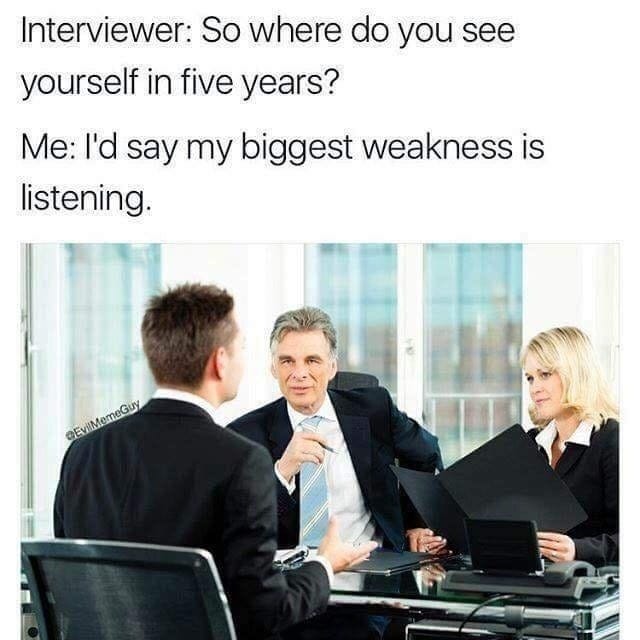Stop Trying to be Someone Else
Maintaining balance in language acquisition
Welcome, aspiring polyglot! A common mistake for many language learners is the belief that everyone struggles with the same thing. In fact, many instructors also have difficulty with this because it can be easy to forget that not everyone sees things the same way. Some people will naturally be able to understand what is being said to them even before they know the language all too well. Others will have no problem reading. Few will find writing to be an easy task.
For you, however, future polyglot, none of that matters. For our purposes n=1 which means until you find out where you are strong and where you are weak, taking the advice of others will not be beneficial. Of course there are some universal challenges we all face and it is worth learning how to overcome them, but they will be the easiest to surmount. What really matters is learning where you have the most trouble and finding ways to solve your problems.
Your progress will be unique to you
An inherent danger of comparing yourself to others and blindly accepting one learning style is that we all have our own unique strengths and weaknesses. Due to this, what matters is finding what works for you rather than what has worked for others in the past. That said, one of the best ways to determine what works best for you is by trying out several different methods until one of them clicks.
For example, if you find reading to be really easy, then you should lean into that and spend more time reading. Until you have a solid grasp of the vocabulary and grammar structures you are going to be working with, reading is a phenomenal way to practice your language with little to no risk. Not only that, but you can and should be using it to progress your speaking ability. I know I say this a lot, but I also know that many of you know you should be doing something and still aren’t:
On the other hand, if you enjoy creating and storytelling, then writing is the route for you. Of course, over time you are going to need to balance everything out as bilingualism demands more than one skill, but whenever you are tired or unmotivated, doing things you are good at makes studying more enjoyable. But strengths are not the only thing that matter.
You must also learn to identify your weaknesses so that you can properly address them. Avoiding problems rarely works out and this is even more true when it comes to problems that are chronic. Whether we like it or not, we have to work twice as hard to master our weak areas as we do to master our strong areas. That means spending twice as much time working on them, so it is crucial that you find ways to enjoy the suffering.
Comparing yourself to others is probably the best way not to do that. Language acquisition and the rate at which it happens is hyper dependent on so many outside variables that it does more harm than good to compare yourself. Learning from others and adopting your favorite parts of what they do into your routine will help far more than copying them identically and wondering why you aren’t where you think you should be.
Addressing your weaknesses
Learning how to ameliorate your weaknesses comes with the added benefit of failing miserably hundreds, possibly thousands, of times over the course of a year. That does not, however, mean that you have to spend the whole time being miserable. Believe it or not, sometimes even failure can be enjoyable and since you are in control of your education, you can make it enjoyable for yourself.
Let’s take speech for example, something that is difficult for just about every single person who endeavors to learn a new language. If pronunciation and fluidity are weaknesses you have, but you are a strong reader, then you can read to speak better. Reading aloud will allow you to practice your pronunciation without having to think of what you want to say. As you improve your pronunciation you can shift your focus to fluidity and reading further and further.
When it comes to the actual structuring of sentences that is necessary in order to speak, then writing may be better. Therefore, if you do enjoy writing, then lean into that to help progress your speaking abilities. Writing is how you train your recall and it is extremely frustrating because it will show you without kindness just how much you are lacking. At the same time, because of that it is one of the things that moves the needle the most, no matter how much you avoid it.
The last thing you must remember when working on your weaknesses is that you have to be honest with yourself. Not only in the ways that you are struggling, but in the ways you are progressing. This is another reason I always recommend having a good writing routine in place for your second language acquisition. Sometimes it can feel like you are not progressing. Having a written record of your progress from day one will show you just how far you’ve come.
Conclusion
Of all the things I’ve learned as an instructor, the fact that each person learns in an individual way at an individual pace is the most prevalent. So many people spend their time trying to optimize their routine based off of what other people do. Taking some of what works best for you from every resource is far better than taking some copy paste program and hoping it will work for you.
It is crucial that you individualize your education, but that does not mean you have to do anything on your own.Running away from your weaknesses is never going to help you overcome them. With language acquisition there is no escaping any element. You have to speak, you have to understand, you have to read, you have to write.
Doing away with any of these four, while possible, will be evident to native speakers. It will be difficult, to tackle every aspect of language acquisition and remain consistent for months and years on end, but you can do difficult things and be great. So do some difficult things and become great. I am rooting for you.
Requests
If you have anything you would like covered you can reach out to me on X, Instagram, or at odin@secondlanguagestrategies.com.
Additional Resources
Don't want to spend time playing catch up? Pick up the 3 Months to Conversational book now available on Amazon! 3 Months to Conversational
For more long form content be sure to check out the website!
Subscribe for new content on YouTube and TikTok!
Learning Spanish? We have begun aggregating resources in you Spanish Resource Newsletter!
Don't forget to pick up your very own French Language Logbook or Spanish Language Logbook!






